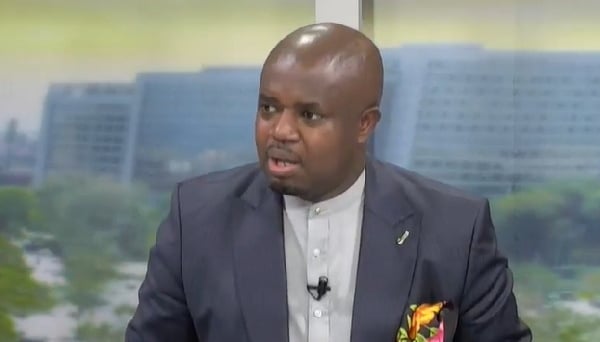The unfolding legal battle surrounding Kwabena Adu Boahene, the former Director-General of the National Signals Bureau (NSB), has intensified, with Godwin Edudzi Tamakloe, the Director of Legal Affairs for the National Democratic Congress (NDC), demanding clear and direct answers regarding the alleged misappropriation of public funds. The core accusation revolves around Mr. Adu Boahene’s alleged diversion of state funds into a private company he established, a charge that has sparked national debate and raised concerns about accountability within the highest echelons of national security agencies. Mr. Tamakloe’s pointed questioning seeks to establish a direct link between Mr. Adu Boahene and the movement of funds, demanding to know if he personally authorized the transfer of public money into the account of his private company and whether he was a signatory to that account. The series of questions aim to dissect the financial transactions and expose the alleged scheme meticulously.
Central to the allegations is the timing of events. Mr. Tamakloe contends that in January 2020, while Mr. Adu Boahene was at the helm of the NSB, a contract was signed with an Israeli company for the supply and installation of security equipment. Concurrently, Mr. Adu Boahene allegedly incorporated a private company with a name strikingly similar to that of the state agency, raising suspicions of a deliberate attempt to blur the lines between his private venture and his public office. It is into this privately held company’s account that public funds were allegedly channeled, an action that Mr. Tamakloe unequivocally characterizes as theft, driven by dishonest intentions. The gravity of the situation is further underscored by the fact that these alleged transactions occurred within a sensitive national security body, raising questions about the potential compromise of sensitive information and operations.
Mr. Tamakloe has vehemently rejected the defense’s attempts to justify the alleged diversion of funds by claiming they were used for payments to Members of Parliament during the 2024 elections. He argues that this explanation, offered after the fact, is both irrelevant and a blatant attempt to distract from the core issue of alleged misappropriation. The central point of contention remains the alleged dishonest act of appropriating public funds, an act that Mr. Tamakloe maintains cannot be negated by subsequent claims of using those funds for political purposes. He dismisses the defense’s argument as a belated afterthought designed to mitigate the seriousness of the charges. The focus, according to Mr. Tamakloe, should remain on the initial act of diverting public funds for private gain.
Further intensifying the legal debate is the defense’s purported reliance on the Security and Intelligence Act, 2020. Mr. Tamakloe challenges this legal strategy, pointing out a crucial chronological discrepancy: the alleged offences took place in January and March of 2020, while the Act itself was not assented to until October of the same year. He argues that invoking a law retroactively to justify actions that predate its enactment is legally unsound and demonstrates a flawed understanding of legal principles. This challenge to the defense’s legal strategy underscores the importance of adhering to established legal timelines and the inadmissibility of applying laws retroactively to past conduct.
The pointed questions posed by Mr. Tamakloe are designed not merely to elicit information but to frame the narrative of the case. They highlight the alleged sequence of events: the contract with the Israeli company, the incorporation of the private company with a similar name, the channeling of public funds into that private account, and the subsequent, and arguably unconvincing, justification for the use of those funds. This line of questioning seeks to establish a pattern of deliberate and dishonest conduct by Mr. Adu Boahene, emphasizing his personal involvement in every step of the alleged scheme. The emphasis on personal accountability aims to prevent the defense from shifting blame or obscuring the facts.
The ongoing legal proceedings are under intense public scrutiny. Mr. Tamakloe’s strong stance and detailed questioning have brought the allegations into sharper focus, setting the stage for a potentially complex and protracted legal battle. The gravity of the charges, coupled with the sensitive nature of the agency involved, ensures that the case will continue to generate national debate and raise crucial questions about transparency and accountability within the realm of national security. The case serves as a crucial test of the country’s legal system and its capacity to hold individuals accountable for alleged financial misconduct, especially when such allegations involve sensitive state institutions and potentially jeopardize national security interests. The outcome of this case will undoubtedly have significant repercussions for future governance and oversight of national security agencies.














